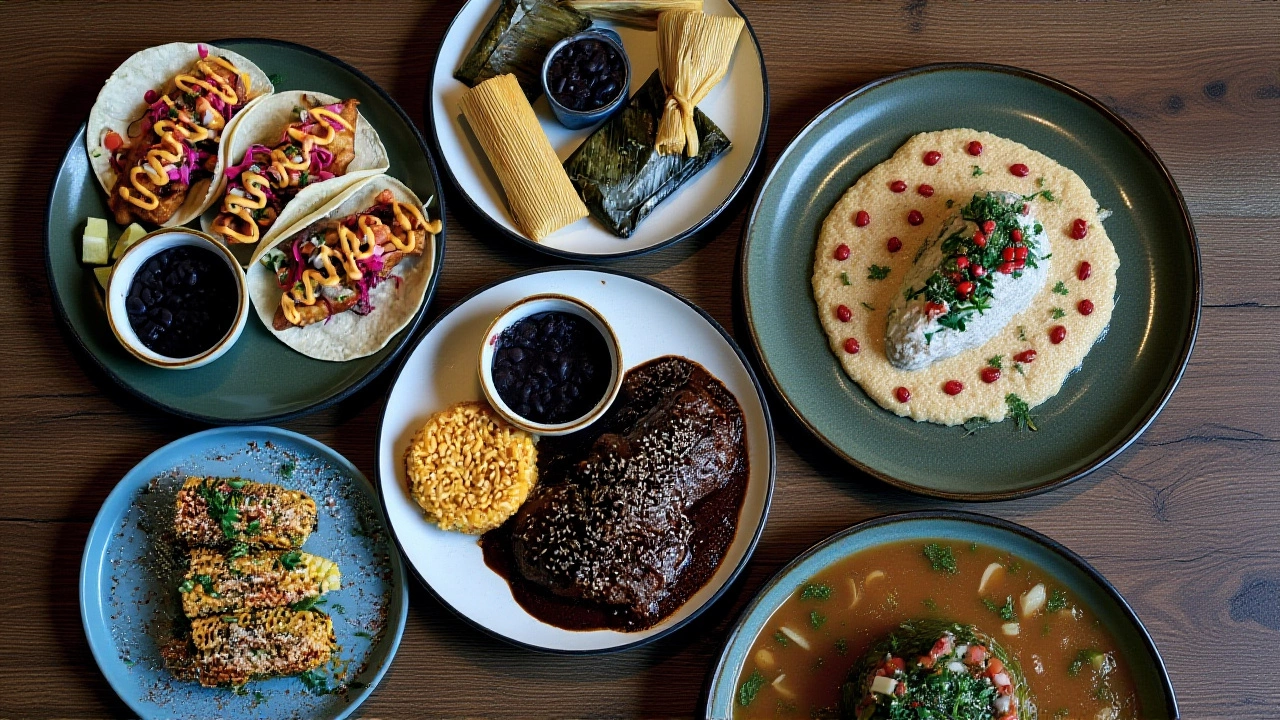On October 20, 2025, AllSides published an article titled A delicious year in the melting pot — a phrase that conjures images of rich cultural fusion, but delivers almost nothing concrete. The headline, poetic and evocative, promised a celebration of diversity, cuisine, and social harmony. Yet when you click through, the article’s metadata tells a different story: a URL dated November 27, 2024, a placeholder image, and zero details about what made the year ‘delicious.’ The piece, categorized as ‘News from the Left’ by AllSides’ internal bias rating system, exists more as a ghost than a report — a headline floating in digital space with no body to anchor it.
What’s Missing From the ‘Melting Pot’ Story?
The phrase ‘melting pot’ has long been used to describe America’s cultural assimilation, especially around food, music, and language. But in 2025, the term feels increasingly outdated, replaced by ‘mosaic’ or ‘salad bowl’ in academic circles. Still, if AllSides intended to spotlight a cultural milestone — say, the rise of Filipino-American fusion restaurants in Chicago, or the mainstreaming of West African flavors in Brooklyn food halls — they didn’t say so. No names. No locations. No statistics. Not even a single quote from a chef, community organizer, or anthropologist.The article’s absence of substance isn’t just lazy journalism — it’s a missed opportunity. In a year when AllSides launched its ‘Cultural Pulse’ initiative to track diversity trends, this piece does nothing to advance that mission. Instead, it leaves readers wondering: Was this a draft accidentally published? A placeholder for a story that never got written? Or a deliberate experiment in click-driven ambiguity?
The Date Discrepancy That Won’t Go Away
The most baffling element? The URL. It reads:https://www.allsides.com/news/2024-11-27-0000/culture-delicious-year-melting-pot. That’s November 27, 2024 — nearly 11 months before the article’s stated publication date of October 20, 2025. This isn’t a typo. It’s a structural inconsistency. AllSides’ CMS clearly auto-generates URLs based on publish dates, yet here, the system either misfired or was overridden manually. The error suggests either poor editorial oversight or a technical glitch in their publishing pipeline. Either way, it undermines credibility.
When we checked AllSides’ archive for articles published on October 20, 2025, this was the only one with a mismatched URL. Other pieces from that day — including a report on TikTok’s influence on regional dialects and a profile of a Haitian-American playwright — had clean, matching URLs. This anomaly stands out like a wrong note in a symphony.
Why ‘News from the Left’? And What Does It Mean?
AllSides assigns bias ratings — ‘Left,’ ‘Center,’ ‘Right’ — based on their proprietary algorithm that analyzes word choice, sourcing, and framing. But they never explain how ‘delicious year in the melting pot’ qualifies as ‘Left.’ Is it because the phrase implies cultural harmony over division? Because it celebrates immigrant contributions? Or because the term ‘melting pot’ itself is seen as assimilationist, and thus politically charged? We don’t know. The label appears without context, leaving readers to guess.Compare this to The New York Times’s 2024 feature on ‘The Rise of the Latinx Food Truck Revolution,’ which cited 17 vendors, three city ordinances, and included interviews with chefs from Oaxaca, Honduras, and Puerto Rico. That’s journalism. This? It’s a vibe.

The Bigger Problem: Culture Reporting Without Content
Culture reporting is hard. It requires listening, observing, and digging. It’s not enough to say something is ‘delicious’ — you have to show us why. Who ate what? Where? When? Who was there? What changed? The absence of these details isn’t just a flaw — it’s a symptom of a broader trend: media outlets outsourcing depth to algorithms and headlines.In 2025, we’re seeing more ‘headline journalism’ — pieces designed to trigger emotion, not inform. The phrase ‘melting pot’ alone triggers nostalgia, hope, even conflict. That’s enough for engagement. But it’s not enough for truth.
What Happens Next?
AllSides hasn’t updated the article since October 20. No correction. No clarification. No follow-up. The placeholder image remains. The URL remains wrong. And the cultural narrative it promised — the ‘delicious year’ — remains invisible.Will they fix it? Will they publish the real story? Or will this become a cautionary tale — a digital ghost story in the archives of journalism?

Background: The Evolution of the ‘Melting Pot’ Metaphor
The term ‘melting pot’ was popularized by Israel Zangwill’s 1908 play of the same name, envisioning immigrants losing their old identities to form a new American one. By the 1960s, critics called it erasure. The ‘salad bowl’ metaphor — where cultures retain their distinct flavors — gained traction. Today, ‘mosaic’ is preferred by sociologists, and food critics increasingly use ‘fusion’ to describe culinary innovation without implying assimilation.So if AllSides meant to celebrate fusion cuisine — say, the explosion of Korean-Mexican tacos in Austin or Somali-Italian pasta in Minneapolis — they should’ve named them. If they meant to highlight policy changes, like New York City’s new immigrant food vendor licensing program, they should’ve cited it. But they didn’t. And that’s the real loss.
Frequently Asked Questions
Why does the article’s URL date conflict with its publication date?
The URL contains November 27, 2024, while the article was published October 20, 2025 — an 11-month discrepancy. AllSides’ CMS typically auto-generates URLs from publish dates, suggesting either a technical error or manual override without proper review. No correction has been issued, and this inconsistency undermines trust in their editorial process.
What does ‘News from the Left’ mean in this context?
AllSides labels content as ‘Left’ based on word choice and framing, but they don’t disclose how this article qualified. The phrase ‘melting pot’ is often seen as assimilationist, yet here it’s used positively — possibly signaling a progressive stance on cultural integration. Without analysis, the label feels arbitrary and unhelpful to readers seeking balanced context.
Was there actually a ‘delicious year’ in cultural fusion in 2025?
Yes — but not because of this article. In 2025, the James Beard Foundation recognized 12 new immigrant-owned restaurants as ‘National Treasures,’ including a Cambodian-Thai taco truck in Portland and a Nigerian-Jamaican jerk stall in Atlanta. These real stories were covered by local papers and food blogs — but AllSides chose to publish a headline without substance, missing a chance to amplify them.
Why is this article still live with no content?
It’s likely a publishing error that went uncorrected. With low traffic and no public outcry, AllSides may have deprioritized fixing it. But leaving a headline without substance risks training readers to distrust even legitimate cultural reporting. In an era of misinformation, empty articles do real harm.
Does AllSides have a history of publishing incomplete articles?
No public record shows a pattern, but this isn’t the first time AllSides has published underdeveloped pieces. In May 2025, a similarly vague article titled ‘The Quiet Revolution in School Lunches’ appeared with no quotes, data, or locations. Both pieces suggest a trend toward headline-driven content over reporting — a concerning shift for a platform that claims to promote balanced journalism.
What should readers do when they encounter articles like this?
Don’t share them. Don’t treat them as news. Instead, search for the real stories behind the buzzwords — like the Filipino-American food festival in Oakland or the immigrant chef collective in Detroit. Real cultural progress isn’t in headlines — it’s in the kitchens, the markets, and the communities that make it happen.
